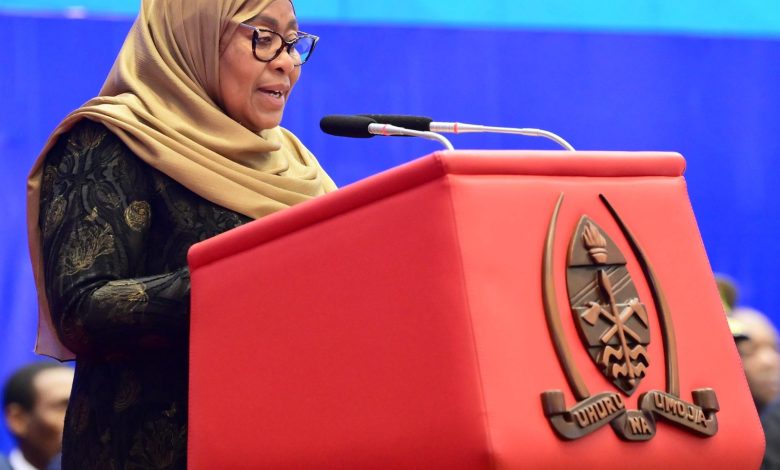Tanzania unveils sports growth vision

DODOMA: PRESIDENT Samia Suluhu Hassan has officially launched Tanzania’s Vision 2050, a bold and ambitious blueprint that identifies the sports and creative industries as one of the major drivers of economic growth, national unity and youth empowerment.
While acknowledging their vast potential, the document admits these sectors remain significantly underexploited.
The Vision 2050 document highlights that if strategically harnessed, sports and the creative economy could play a vital role in poverty reduction and sustainable development, particularly by unlocking opportunities for young people.
“Sports and creative industry hold untapped potential for driving socio-economic growth,” the document states.
“These sectors offer vast opportunities for economic growth, social cohesion and youth empowerment, providing diverse avenues for empowerment, skill development, and income generation.”
The long-term plan sets a lofty ambition – that by the year 2050 Tanzania will position itself as the African continent’s cultural and sporting powerhouse.
The vision encompasses music, film, fashion and entertainment as integral components of national development.
“By 2050, Tanzania aims to become a leading cultural and sporting hub in Africa, with thriving industries in music, film, fashion and entertainment,” Vision 2050 that was prepared under the leadership of Kitila Mkumbo, Minister in the President’s Office (Planning and Investment) outlines.
To achieve this, the document stresses the importance of laying a strong foundation through talent development and creating an enabling environment that allows entrepreneurship in the sports and creative fields to flourish.
“Cultivating talent and establishing a supportive ecosystem is essential in unlocking the creative and entrepreneurial potential of the youth,” it adds, calling for deliberate policy and infrastructure investments.
ALSO READ: CCM 2025 manifesto sets economic vision to 2030
Recognising the challenges facing creatives and young innovators, the vision also advocates for legislative reforms aimed at protecting intellectual property and ensuring that the benefits of the industry reach the rightful contributors, especially the youth.
“Additionally, investments in infrastructure and intellectual property rights will be crucial to ensuring the sustainability and growth of these industries,” it states.
This commitment to cultural and sporting development is a marked shift in Tanzania’s long-term planning.
While the country has long produced talent in athletics, football, music and fashion, structural challenges and limited investment have often curtailed progress.
Vision 2050 aims to reverse this trend. Analysts say the inclusion of sports and the creative economy in such a strategic policy document is a milestone.
It reflects growing recognition of the industry’s economic and social potential—not just as a form of entertainment or national pride, but as a viable economic sector that can generate jobs, foster unity and contribute significantly to GDP.
What is in the Vision 2050 aligns with the current trend of the sixth phase government investment efforts in the sports infrastructure, promotion of film and comedy industries where studios and stages and screens become platforms for national progress.





